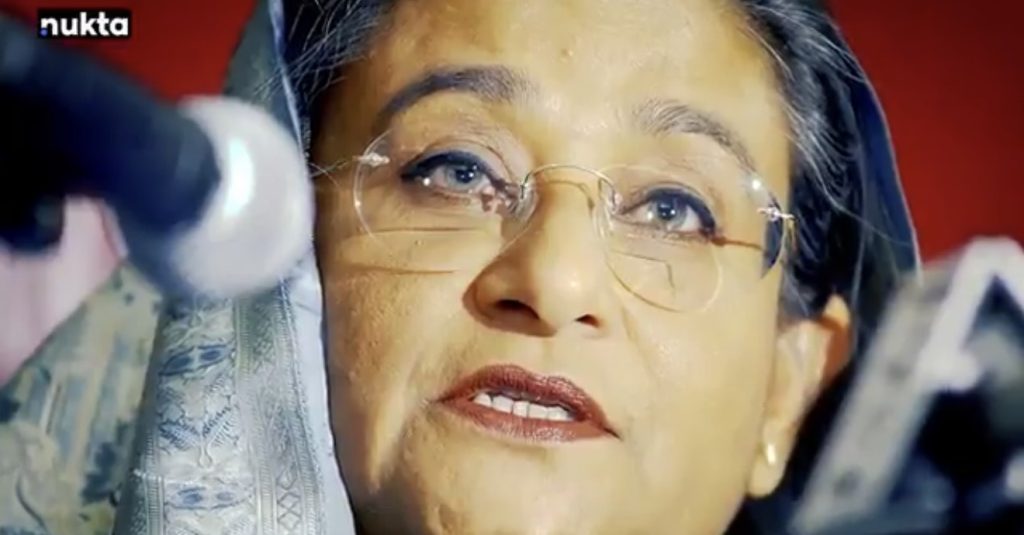A Turning Page in Bangladesh and the Inevitable Reckoning of Power
By Raja Zahid Akhtar Khanzada
Time never rests on a single face. Power, no matter how tall its walls or how wide its corridors, never casts the same shadow forever. The bond between human beings and authority is like the soil that shifts the moment the first line of rain touches it. Yet the rulers of our region continue to forget that the earth may endure injustices for centuries but it never absolves them. Sooner or later, it settles every debt owed by the oppressed.
The dramatic verdict announced in Bangladesh, sentencing two to death and three to life imprisonment, has not merely corrected the record of a tribunal. It has shaken the political foundations of all South Asia. It is not the downfall of a single leader. It is an unforgettable signal to every Pharaoh of power across the subcontinent. Sheikh Hasina Wajed, who ruled for fifteen years from an unchallenged throne, now stands condemned. The same leader who once commanded drones and helicopters to fire upon students now sits behind closed doors in a privileged corner of New Delhi, searching for refuge.
India’s policymakers, who once viewed her as a strategic asset, now find the same figure an unbearable burden. Britain rejected her asylum plea. The United States revoked her visa. And now Bangladesh has formally demanded her extradition from India. The silence on the faces of Delhi’s decision makers is itself a confession. History has once again stripped bare every illusion of permanence.
The International Crimes Tribunal of Bangladesh delivered its severe ruling while the streets of Dhaka still carry the scent of the blood spilled from the bodies of protesting students. The court wrote unambiguously that Hasina Wajed ordered young demonstrators to be crushed under the millstone of state power. Fifty years after its painful birth, Bangladesh has shown the world once again that the cry of the oppressed is more powerful than the throne of any ruler.

The night of the verdict, Dhaka erupted into celebration. Flags rose above crowds. Faces lit with a glow that only a nation’s first breath of justice can produce. Some demonstrators even demanded that the home of Sheikh Mujib be demolished. A residence once venerated as a sacred symbol has now become the epicenter of public rage.
For one brief moment, history enlarged its silhouette and forced an entire region to look at its reflection. Pakistan, India, Sri Lanka, Nepal, all must examine this moment, because it is not merely the story of Bangladesh. It is the deep fault line running across South Asia, a line etched on the forehead of every dictator that has ever claimed immortality.
What happened in Dhaka is not unprecedented. The world’s great rulers and autocrats have fallen in precisely the same way.
Hosni Mubarak toppled at the hands of his own people.
Qaddafi believed the shadow of his tent would protect him forever.
Franco trusted his iron grip to freeze time.
Marcos imagined his wife’s thousands of shoes would preserve his monarchy.
Pinochet believed history could not break the path he carved.
History proved all of them wrong. Every Pharaoh of power is eventually buried beneath the weight of his own arrogance.
That is why we must remind today’s puppet rulers around the world that time does not remain constant. What they are doing to their people today will return to them tomorrow. The very public they silence now will one day strip them not only of power but of their dignity. The first crime of tyranny is silencing the oppressed. The final crime is strangling the tyrant himself.
Those who sell their people’s dreams, bind their joys, and jail their questions under the label of treason should consider this verdict their eternal warning. Sheikh Hasina first sought refuge in India in 1971. Protected for six years under Indira Gandhi, she now searches again for shelter on the same soil. Yet history does not absolve those who harbor the guilty. Any nation that hides a criminal under its roof will eventually face the tribunal of truth.
Bangladesh’s interim leader Dr Muhammad Yunus has called this judgment historic. And it is indeed more than a political ruling. It is a spiritual verdict, rising from the collective soul of a nation that finally found its voice. When nations awaken, thrones collapse and palaces empty themselves.
Although Hasina Wajed has rejected the verdict and vowed to seek her own reckoning, she forgets one eternal reality. Rulers account for their time. Nations account for centuries. And the account of a nation is never forgiven.
What unfolded in Dhaka today may unfold tomorrow in any capital of the world. What happened to Hasina can happen to every courtier who digs a grave for his conscience and stands beside tyrants out of convenience or fear. The game of power ends on one principle. When the people awaken, even the shadow of falsehood cannot survive.
Time is powerful, yet nations are more powerful than time. And when the hour of the people arrives, neither the gates of mansions nor the walls of parliaments can stand.
This verdict is not confined to a single country. It is a divine call to every ruler on earth who imagines himself above the law. It is a reminder that authority is always a trust and those who betray a trust never remain safe, never remain sovereign, never remain remembered except as warnings.



